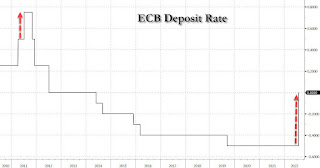Nick Carraway: You can't repeat the past.
Jay Gatsby: Can't repeat the past? Why, of course you can!
--The Great Gatsby
The dominant narrative about President Warren G. Harding was that he was a boob who ran a corrupt administration. To be sure, the Tea Pot Dome scandal happened on his watch, and, similar to Donald Trump, Harding may have been far too trusting of those working in his administration.
However, as this article points out, Harding achieved much during his term in office--a term that was cut short by his untimely, and somewhat suspicious, death in 1923.
A likeable sort who was elected by a landslide in 1920, President Harding was determined to lead Americans weary of war and Wilsonian progressivism into a peaceful age of prosperity. After quickly overcoming a post-war depression using a 'hands off' approach completely lost on modern administrations, Harding focused on perhaps the crown jewel of his legacy: foreign policy.
Harding clearly ended WWI for America. He withdrew troops from the German Rhineland, presided over agreements on war debt, and shunned the military-industrial complex's calls for arms buildup. He convened the Washington Disarmament Conference in late 1921 to ink international agreements on weapons limitations. Harding also withdrew US troops from Latin America and signed several treaties to ease tensions in Asia.
Completing work begun as a senator prior to his presidency, Harding killed his predecessor's League of Nations proposal. "America can be a party to no permanent military alliance," he said. "It can enter into no political commitments, nor assume any economic obligations which will subject our decisions to any other than our own authority."
Wise words which were, of course, subsequently ignored by bureaucrats following WWII.
Warren G. Harding reversed the dangerous internationalism of Woodrow Wilson and put the United States back on the path of neutrality and non-interventionism. America proceeded to roar down that passageway during the Twenties.
Harding's achievements provide a roadmap for how to get back onto that path today.





















![[Most Recent Quotes from www.kitco.com]](http://www.kitconet.com/charts/metals/gold/t24_au_en_usoz_2.gif)


